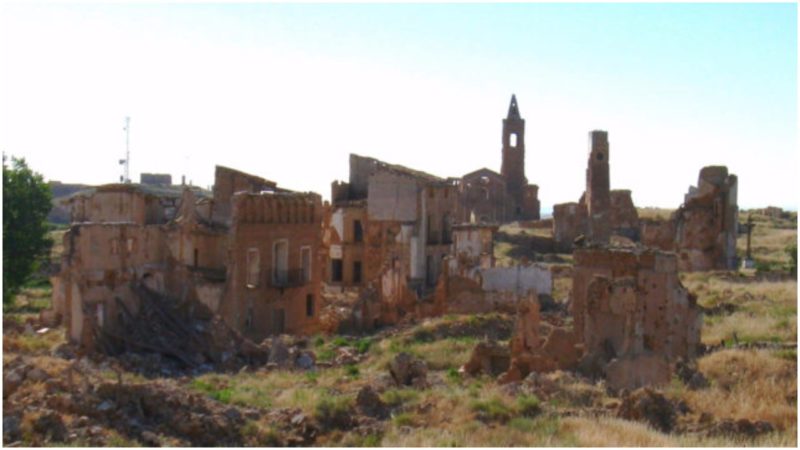The town of Belchite was built in the 12th century by Alfonso the Battler, who was king of Aragon and Navarre. He built several small towns to serve as posts on the border to defend his kingdom against possible attacks from the north.
The town of Belchite served his its purpose as a fortress on several occasions during the time of Alfonso’s reign. Later on, the town became a battleground between the French and the Spanish on 15 June 1809 in the Battle of Maria.
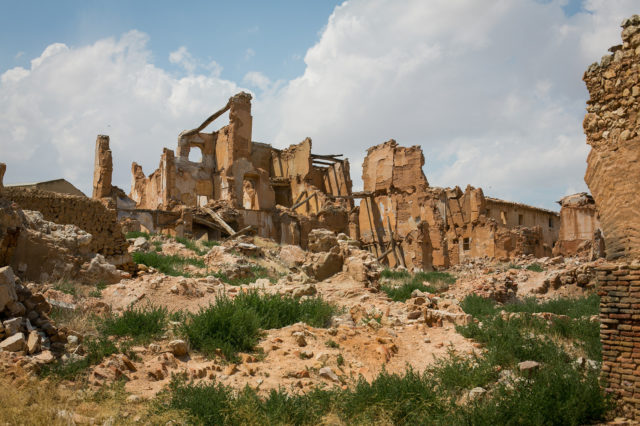
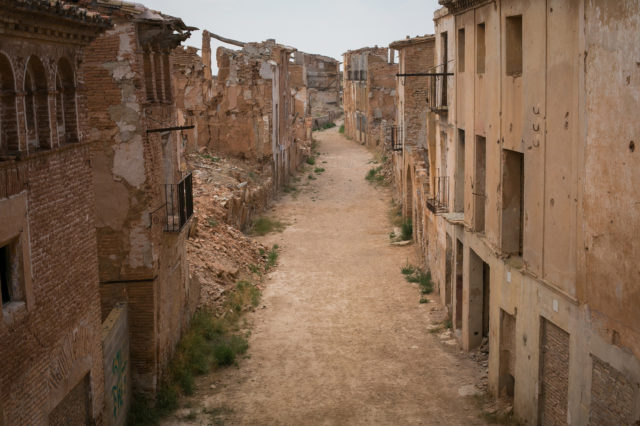
But the most devastating battle of them all was during the Spanish Civil War, fought between the fascist-backed Nationalists and the communist-backed Republicans. It lasted more than 10 days both inside and around the town, almost completely destroying the town and its baroque 12th-century buildings. During this time, at least 3,000 civilians were killed.
Locals believe that the souls of the innocent still haunt the town. A resident of the town, Antonio, reported that “there are many voices and things you can hear sometimes at night. People hear different things; ghosts, yes of course, but more sad than frightening. But what do you expect when you know what happened here?”
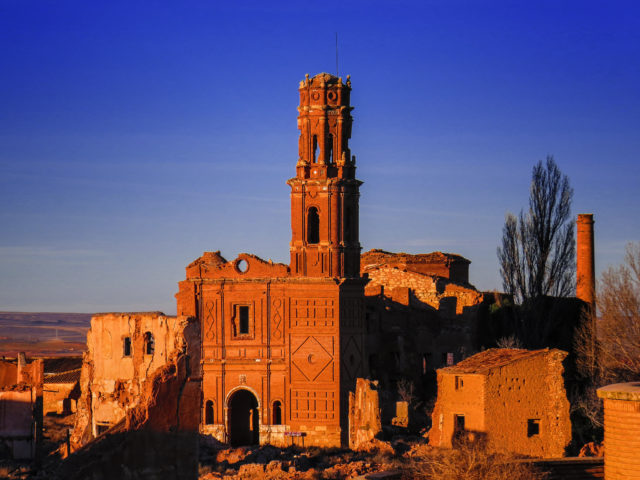
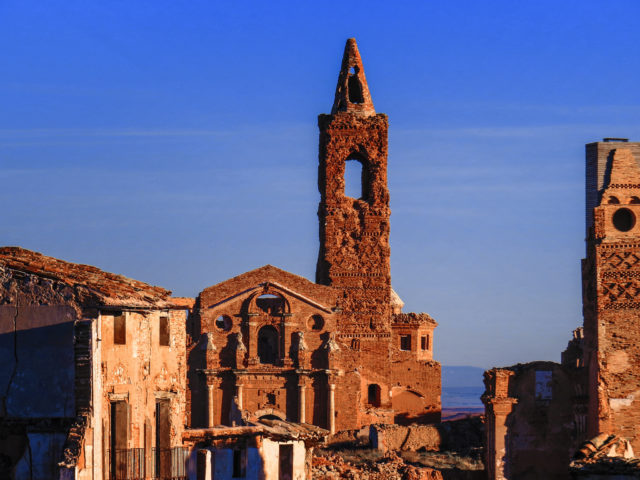
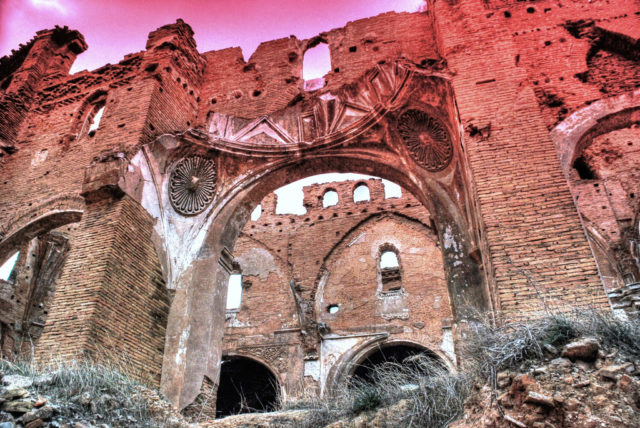
A number of American journalists and writers visited this place shortly after the aftermath of the battle, among them Ernest Hemingway, Martha Gellhorn, and Herbert Matthews. According to Cecil D. Eby, “[the journalists] found a town so totally ruined that often one could not tell where the streets had been. People were digging under piles of mortar, bricks, and beams, pulling out corpses. Mule carcasses, cooking pots, framed lithographs, sewing machines — all covered with flies — made a surreal collage. Belchite was less a town than a nasty smell.”
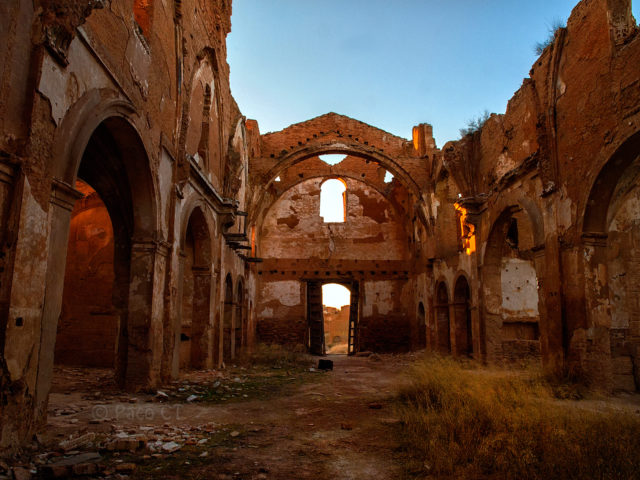
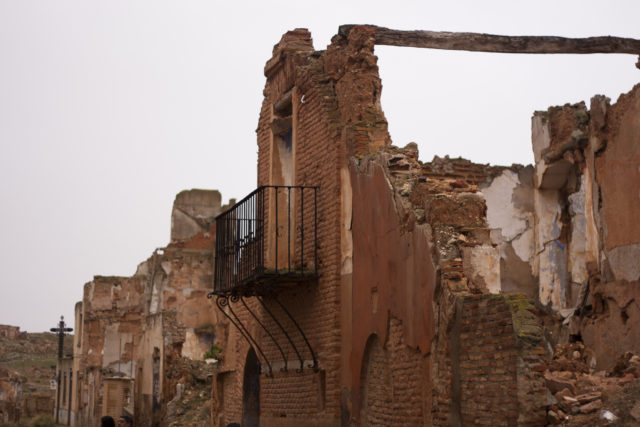
When the war was over and General Francisco Franco became the dictator of Spain, he ordered the town to be left in ruins as a reminder of how dangerous he could be against all those opposing him. After his death, the remains of Belchite stand for another reason. The town stands demolished as a testament to the human foolishness of destruction and killing of its own kind, to remind us all of the human vanity and greediness for power.
